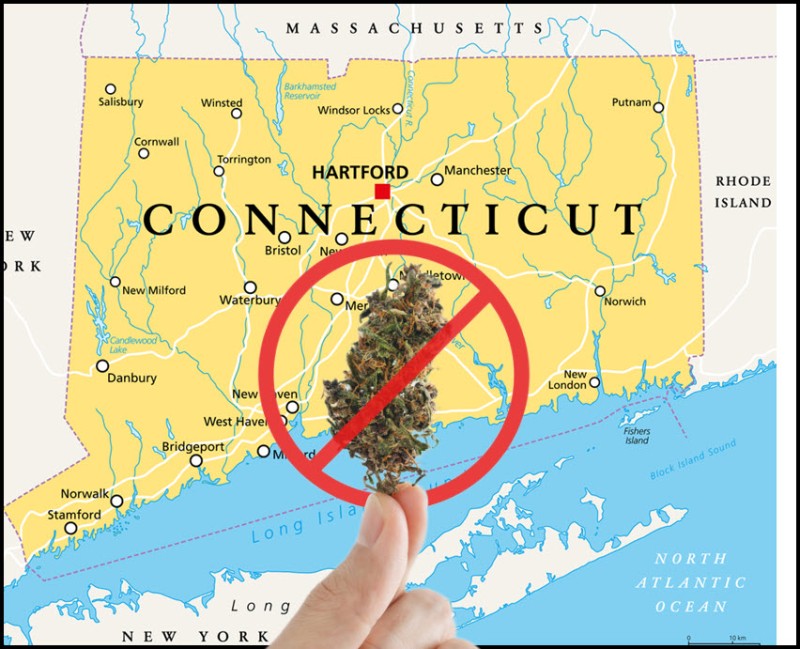
A legal case has been initiated against the Stamford Zoning Board, aiming to exert control over Connecticut's emerging cannabis sector. In addition to addressing city-specific regulations, the lawsuit, which portrays the state's Social Equity Council as a questionable initiative, holds the potential for far-reaching implications across the state. By contesting the law that legalizes the possession and commercial trade of cannabis in Connecticut, the lawsuit argues that this law runs afoul of the federal Controlled Substances Act.
Legal Challenge Against Stamford Zoning Regulations
The Stamford Neighborhoods Coalition, composed of residents concerned about excessive urban development, has taken legal action against the city board due to its decision on July 10. This decision pertained to the adoption of fresh zoning regulations that impact establishments involved in recreational cannabis and smoke retail.
These regulations established a framework for local land use boards to assess zoning applications for various cannabis enterprises. Furthermore, the regulations imposed constraints on the number of dispensaries and smoke shops that authorities are authorized to endorse.
The coalition's attorney, David Herz, authored the grievance submitted to the state Superior Court in Stamford on August 9. The objective of the complaint is to nullify the recently established regulations in Stamford and halt the functioning of all cannabis enterprises throughout the state, alongside other requested actions. Approximately twelve Stamford residents, some associated with the local community organization, have signed the lawsuit.
Relying on unsupported assertions that associate cannabis with unlawful behavior, the lawsuit contends—without substantiating evidence—that "cannabis facilities anywhere in Stamford inherently amplifies criminal activities in the city, thereby endangering the well-being of children."
Additionally, the lawsuit raises concerns about the constitutionality of the state's 2021 legislation. Although the federal Controlled Substances Act designates marijuana as a "Schedule I" substance, the nonpartisan Congressional Research Service indicates that numerous states have veered away from a uniform prohibition of cannabis and have relaxed regulations in recent years.
Enforcement of this federal regulation has been infrequent and has mainly occurred in isolated instances, never targeting a state's cannabis market. Since 2015, Congress has barred the U.S. Department of Justice from utilizing funds to enforce federal regulations against states engaged in cannabis sales.
Furthermore, as indicated by the Congressional Research Service, federal courts have construed this Congressional action to signify that they lack the authority to prosecute instances of state-sanctioned marijuana production and trade. Notably, the Stamford lawsuit was initiated in the Connecticut Superior Court and not at the federal level.
Questioning the State's Social Equity Council
The coalition's legal filing also asserts that the state's Social Equity Council, established to promote the comprehensive growth of the cannabis sector while addressing the historical injustices faced by communities disproportionately impacted by the war on drugs, is characterized as a devious tactic that breaches the equal protection clause of the state constitution.
The lawsuit also contends that the lapsed terms of the members of the city's Zoning Board and Planning Board invalidate the decisions made by these boards. The legal action seeks an injunction from the judges to suspend the operations of the Zoning Board and the Planning Board entirely.
By November, approximately 199 out of the 251 designated board and commission positions in the city had reached their expiration, as outlined in an analysis conducted by The Stamford Advocate. Individuals acquainted with the appointment procedure have noted that recruitment challenges and bureaucratic processes collectively contribute to the difficulty in maintaining a consistent roster of appointees.
Barry Michelson, a member of the Stamford Neighborhoods Coalition, has yet to respond immediately to a comment request.
City Response and Implications
City officials have explained that implementing new regulations was imperative to swiftly control the proliferation of smoke shops, formerly permitted without restriction. In April, law enforcement conducted raids on three Stamford smoke shops for vending products containing illicit levels of THC, the psychoactive element in cannabis.
In an official statement, David Stein, the Chair of the Zoning Board, expressed his "surprise and disappointment that the (coalition) would attempt to nullify these measures, especially considering the considerable support among many Stamford residents for more stringent regulation of smoke shops."
Under the new regulations, Stamford is restricted to having one recreational cannabis retailer for every 25,000 residents. Additionally, these regulations prohibit the operation of smoke shops and dispensaries within 3,000 feet of any similar establishment or 1,000 feet of either a "public or non-public school."
At present, Stamford is home to two hybrid cannabis dispensaries: Curaleaf Stamford, located on East Main Street, and Fine Fettle, situated on Research Drive.
Previously, the city lacked any specific regulations governing the operation of recreational cannabis. According to state law, local authorities must apply the "most similar use" concept to cannabis-related zoning applications without formal guidelines. In Stamford's case, municipal officials determined that the closest equivalent was medical marijuana.
Before adopting these new guidelines, the Zoning Board had dismissed an application in June for a third dispensary located on High Ridge Road—an essential route connecting suburban areas of Stamford with the more densely populated downtown region. The company whose application was rejected, Sweetspot, initiated a legal suit against the board in July, alleging that their denial was carried out "illegally" and in an "arbitrary" manner.
The complaint asserted, "The decision to reject the application contradicts the existing regulations and state laws regarding zoning applications seeking approval for operating hybrid cannabis retailers." Furthermore, it contended that the vote needed to be grounded in alignment with the current regulations.
The Planning Board had initially intended to discuss this proposal during their session on Tuesday night. However, this agenda item has been postponed and will now be addressed during the board's meeting on September 12th.
Conclusion
The legal case against Stamford Zoning Board challenges local cannabis regulations and questions Connecticut's emerging cannabis industry. Initiated by the Stamford Neighborhoods Coalition, it contests city zoning rules and asserts the federal Controlled Substances Act's infringement. However, the evolving cannabis landscape and Congressional limitations on federal enforcement challenge this argument.
The case's skepticism toward the Social Equity Council adds complexity, scrutinizing both local rules and broader industry intentions. Stamford's response highlights the need for effective cannabis sector management after incidents involving unregulated smoke shops. The case's implications extend statewide, influencing Connecticut's cannabis trajectory, regulation effectiveness, equity, and industry development.
CONNECTICUT OPENS FOR CANNABIS SALES, READ ON...
CONNECTICUT CANNABIS SALES TANK ON THE OPENING DAY
.







